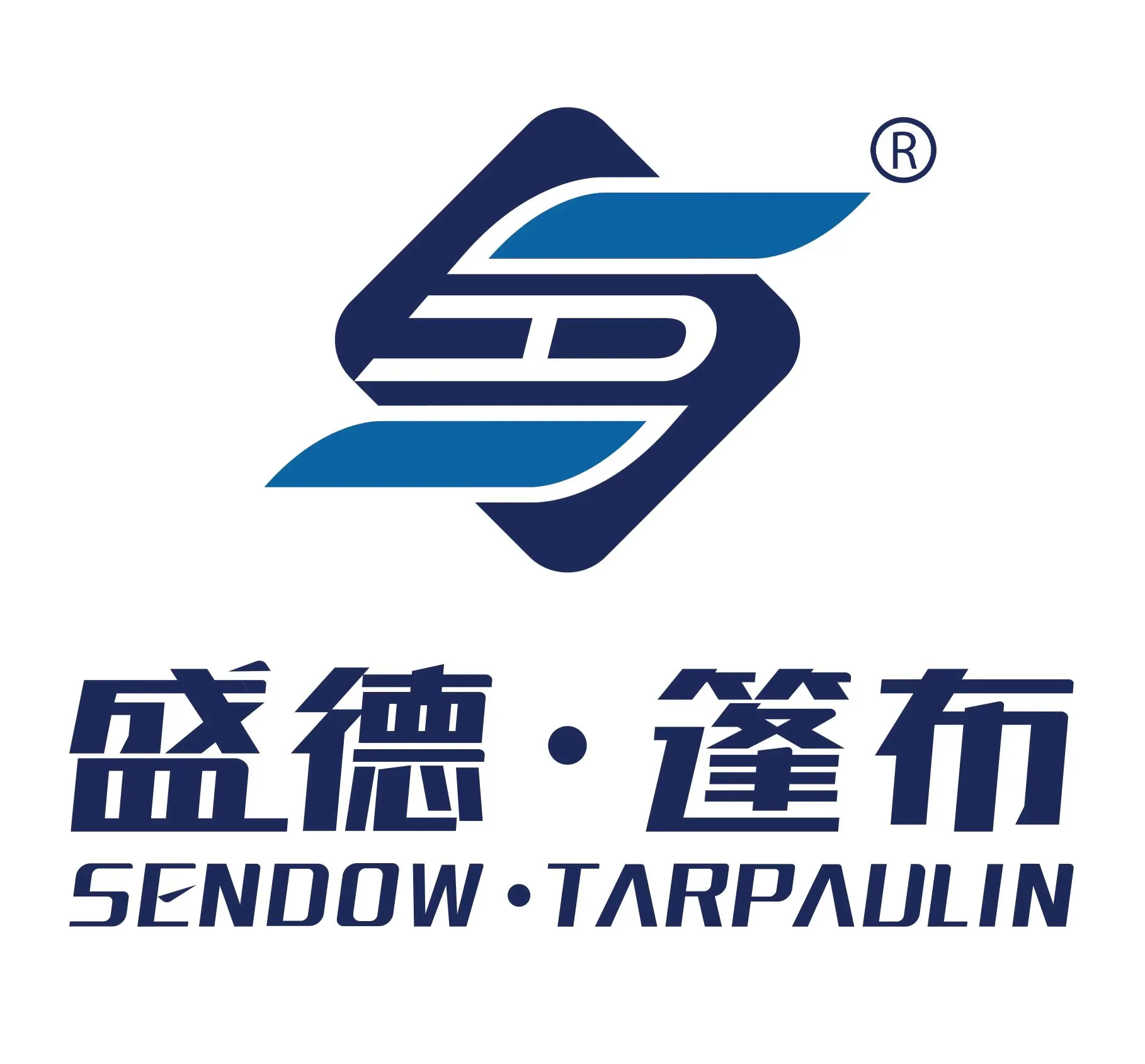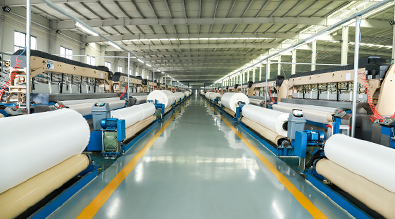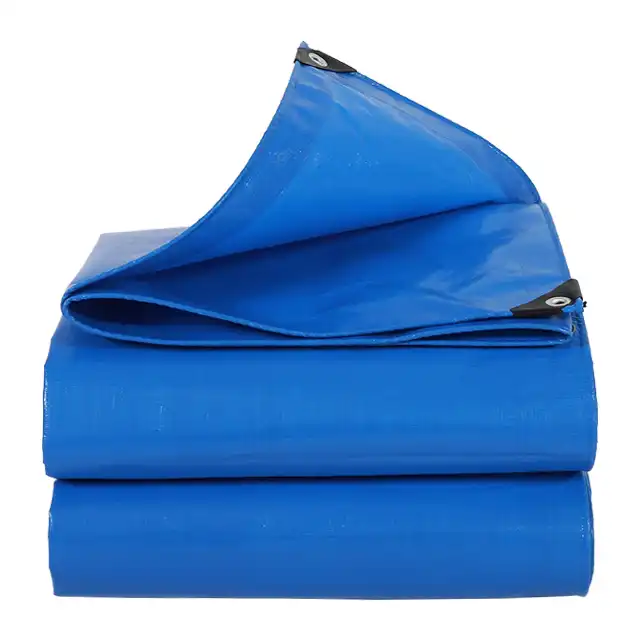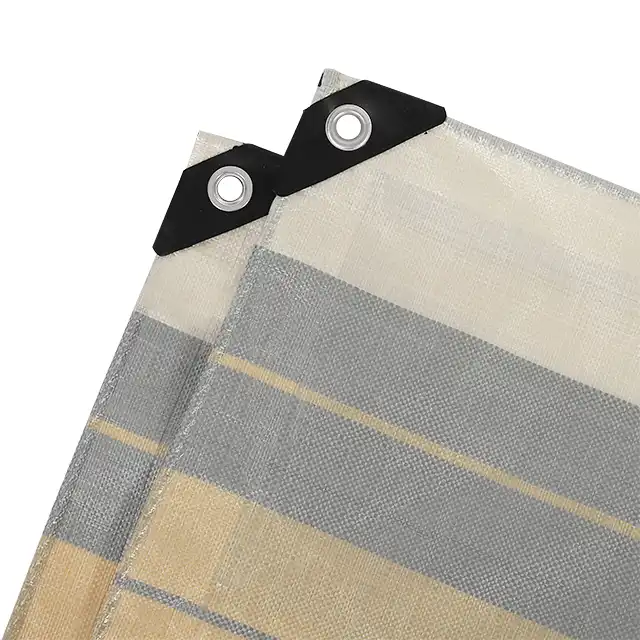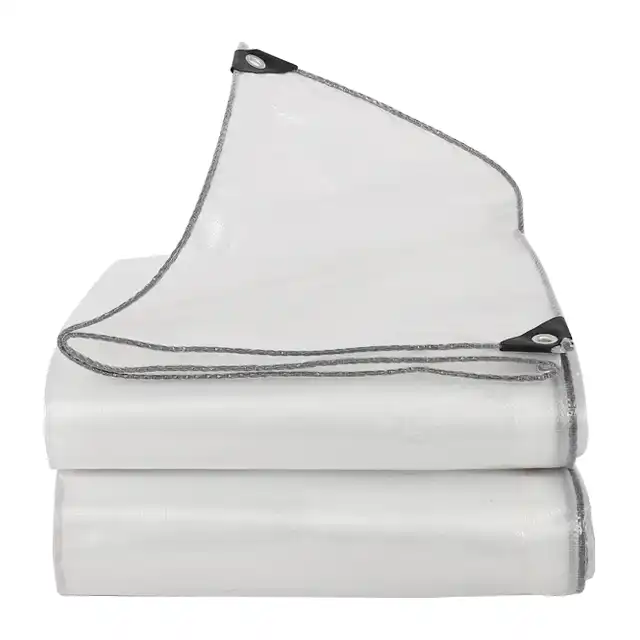Why Are Agricultural Tarpaulins Revolutionizing Crop Protection?
In the evolving landscape of modern agriculture, farmers worldwide are facing unprecedented challenges from unpredictable weather patterns, pest infestations, and the constant pressure to increase crop yields. Agricultural tarpaulins have emerged as a game-changing solution, transforming traditional farming practices with their versatility and effectiveness. These specialized protective covers made from high-density polyethylene (HDPE) woven fabrics with LDPE coating are revolutionizing crop protection by providing reliable shields against environmental threats while offering durability, cost-effectiveness, and sustainability benefits that conventional methods cannot match. From preventing frost damage to creating controlled growing environments, agricultural tarpaulins are becoming indispensable tools for farmers seeking to safeguard their harvests and maximize their agricultural output in increasingly challenging conditions.
Environmental Protection Benefits of Agricultural Tarpaulins
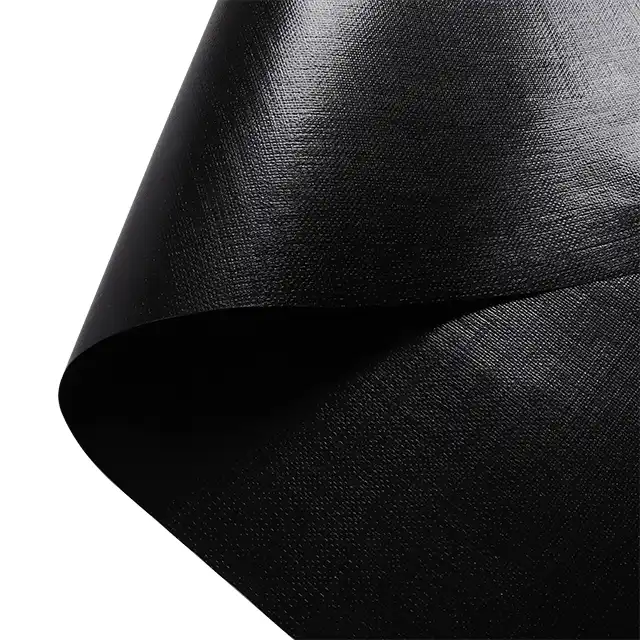
Enhanced Weather Resistance for Vulnerable Crops
Agricultural tarpaulins have transformed how farmers protect their valuable crops against harsh weather conditions that once devastated entire harvests. Made with high-strength polyethylene fibers woven into durable fabric and laminated on both sides, these tarps create impenetrable barriers against rain, hail, wind, and snow. The waterproof nature of agricultural tarpaulins is particularly crucial during unpredictable rainy seasons when excessive moisture can lead to root rot, fungal infections, and other moisture-related diseases. Sendow's agricultural tarpaulins feature 100% waterproof technology, with weights ranging from 65gsm to 280gsm depending on the specific application requirements. The material's tear-resistant properties ensure that even under strong wind conditions, the protective covering remains intact. Furthermore, these tarps maintain their flexibility and performance even in freezing temperatures, thanks to their arctic flexibility feature that prevents cracking or brittleness. This adaptability to extreme temperature fluctuations makes agricultural tarpaulins indispensable tools for year-round farming operations, allowing farmers to extend growing seasons and protect crops regardless of seasonal weather challenges.
UV Protection That Preserves Crop Quality
One of the most significant advancements in agricultural tarpaulins is their specialized UV protection capabilities, which shield sensitive crops from harmful solar radiation. Sendow agricultural tarpaulins incorporate UV treatment ranging from 1% to 7%, effectively filtering the most damaging ultraviolet rays while still allowing beneficial light to reach the plants below. This balanced protection is crucial for preventing sunscald on fruits and vegetables, leaf burn on tender greens, and premature crop desiccation during intense summer heat. The high-strength yarn used in manufacturing these tarps provides extra UV protection against harmful sunrays and fading, ensuring the covering maintains its protective properties throughout multiple growing seasons. Research has demonstrated that proper UV-protected agricultural tarpaulins can reduce crop damage from solar radiation by up to 40%, preserving not only the visual appearance of produce but also maintaining nutritional integrity and shelf life. For greenhouse applications, these specialized coverings create optimal growing conditions by diffusing harsh direct sunlight into softer, more evenly distributed light that promotes healthier plant development without the stress of excessive heat or radiation exposure.
Microclimate Management for Optimal Growth
Agricultural tarpaulins excel at creating controlled microclimates that optimize growing conditions regardless of external environmental factors. By strategically employing these protective covers, farmers can manipulate temperature, humidity, and air circulation to create ideal environments for specific crops. The middle-duty PE tarpaulins from Sendow, with mesh counts ranging from 10×10 to 14×14 and thicknesses between 7-12 mil, provide precisely the right balance of protection and breathability. This balanced permeability allows for moisture control that prevents the excessive humidity that leads to mold and mildew while retaining enough moisture to reduce irrigation needs. During colder seasons, agricultural tarpaulins trap daytime heat and create a greenhouse effect that maintains warmer soil temperatures overnight, protecting delicate root systems from freezing and extending the growing season by several weeks at both ends of the calendar. The ability to create these protected microclimates has proven particularly valuable for specialty crop producers who can now grow temperature-sensitive varieties in regions previously considered unsuitable. Moreover, the consistent growing conditions established under agricultural tarpaulins lead to more uniform crop development, synchronized maturation, and ultimately higher-quality harvests that command premium market prices. Sendow's customizable agricultural tarpaulins, available in various colors and sizes up to 5.1m in width, allow farmers to tailor their microclimate management strategies to specific crops and regional climate challenges.
Economic Advantages of Modern Agricultural Tarpaulins
Cost-Efficiency Through Extended Product Lifespan
The remarkable durability of today's high-quality agricultural tarpaulins delivers exceptional return on investment for farmers worldwide. Manufactured with advanced materials and production techniques, Sendow's agricultural tarpaulins demonstrate outstanding longevity that transforms them from mere expenses into valuable farm assets. Constructed from super strong, tightly woven polyethylene (PE) fibers with specialized lamination on both sides, these tarps withstand the rigors of continuous outdoor exposure. Their anti-corrosion and shrink-proof properties ensure they maintain structural integrity even when subjected to harsh agricultural chemicals, fertilizers, and cleaning agents. The manufacturing process incorporates specialized stabilizers that prevent degradation from constant sun exposure, with UV treatments ranging from 1% to 7% depending on the specific application requirements. This extended lifespan translates to significant cost savings when calculated over multiple growing seasons. While lower-quality coverings might require replacement every season, premium agricultural tarpaulins from established manufacturers like Linyi Shengde Plastic Co., Ltd. often remain fully functional for 3-5 years of continuous use. Farmers particularly appreciate the tear-resistant qualities that prevent minor damage from escalating into complete tarp failure, as reinforced edges and strategic reinforcement points withstand the strain of installation, adjustment, and seasonal storage. With a monthly production capacity of 4000MT and strict quality control systems certified under ISO 9001:2015, Sendow ensures consistent product performance that delivers reliable protection year after year, allowing farmers to amortize their protective covering investments across multiple harvests.
Labor and Resource Optimization
Agricultural tarpaulins significantly reduce labor requirements and optimize resource utilization across various farming operations. The lightweight construction of these protective coverings—ranging from 100gsm to 180gsm for middle-duty applications—makes them remarkably easy to deploy and reposition with minimal workforce. This ease of handling contrasts sharply with traditional crop protection methods that often required extensive labor for installation and maintenance. Beyond labor savings, agricultural tarpaulins deliver substantial water conservation benefits through reduced evaporation rates, particularly valuable in regions facing water scarcity challenges. When properly installed, these waterproof barriers minimize soil moisture loss, potentially reducing irrigation requirements by 25-40% compared to uncovered cultivation. The waterproof nature of Sendow's agricultural tarpaulins enables more efficient use of agricultural inputs as well, preventing fertilizer and pesticide runoff during rainfall events. This retention of valuable nutrients and crop protection chemicals directly translates to reduced input costs and minimized environmental impact. Additionally, the application of agricultural tarpaulins in post-harvest scenarios provides exceptional protection for stored crops and equipment, extending the useful life of farm investments and reducing replacement costs. The availability of custom sizes upon request means farmers can obtain precisely the dimensions needed for specific applications, eliminating material waste and ensuring optimal coverage efficiency. This optimization of human and material resources creates cascading economic benefits throughout the agricultural operation, improving overall farm profitability while building resilience against labor shortages and resource constraints.
Yield Improvement and Market Value Enhancement
Agricultural tarpaulins deliver measurable improvements in both crop yield and market value through multiple interrelated mechanisms. By providing consistent protection against environmental stressors, these specialized coverings minimize crop losses that traditionally eroded profit margins. Research indicates that properly deployed agricultural tarpaulins can increase marketable yield by 15-30% compared to unprotected cultivation, particularly for high-value specialty crops sensitive to environmental damage. The quality enhancement extends beyond merely preserving crops to actively improving their market desirability. Fruits and vegetables grown under agricultural tarpaulins typically develop more uniform size, color, and maturation timing—attributes that command premium prices in both wholesale and direct-to-consumer markets. The protective environment created by Sendow's agricultural tarpaulins, available in various colors to optimize light spectrum for specific crops, significantly reduces cosmetic damage from hail, wind-blown debris, and insect activity. This reduction in blemished produce directly increases the percentage of harvest achieving top-grade classification and corresponding price points. For organic producers, agricultural tarpaulins provide valuable pest management alternatives that maintain certification compliance while protecting crop quality. The impermeable barriers created by these tarps effectively block ground-dwelling pests from accessing valuable crops, reducing reliance on organic pesticides and their associated costs. Perhaps most significantly, agricultural tarpaulins enable season extension strategies that allow farmers to reach markets during supply gaps when prices typically peak. By protecting crops from early or late frosts, farmers can harvest weeks before or after conventional growing windows, capturing maximum market value during periods of limited supply. With customizable sizes and specifications, Sendow's agricultural tarpaulins enable precise implementation of these yield-enhancing strategies across diverse agricultural operations.
Innovative Applications Transforming Modern Farming
Advanced Greenhouse and Tunnel Systems
Agricultural tarpaulins have revolutionized greenhouse and tunnel farming by providing affordable, versatile covering solutions that transform traditional growing environments. Sendow's agricultural tarpaulins, with their maximum width of 5.1 meters without joints, enable the construction of spacious high tunnels and greenhouses without the structural complications and light-blocking issues caused by seams and overlaps. These specialized coverings create optimal growing environments through their balanced light transmission properties, allowing beneficial wavelengths to penetrate while blocking excessive heat and harmful radiation. The temperature regulation capabilities of agricultural tarpaulins are particularly valuable in greenhouse applications, as they prevent overheating during peak daylight hours while retaining warmth during cooler periods. Modern agricultural tarpaulins incorporate advanced light-diffusion properties that eliminate harsh shadows and create more uniform growing conditions throughout the protected structure. This even light distribution promotes consistent crop development and prevents the uneven maturation that complicates harvest scheduling and market delivery commitments. Innovative multi-layer designs integrate condensation control features that prevent water droplets from forming on the interior surface and falling onto sensitive plant tissues, reducing disease pressure and improving crop quality. For regions with extreme temperature variations, the arctic flexibility of Sendow's agricultural tarpaulins ensures they maintain structural integrity without cracking or tearing even during sudden temperature drops, protecting valuable crops inside. The waterproof yet breathable nature of these specialized coverings maintains ideal humidity levels that support plant health while preventing the excessive moisture that triggers fungal pathogens. Greenhouse operators particularly value the customizable nature of agricultural tarpaulins, with options available in various colors to optimize specific light wavelengths for different crops and growth stages, truly transforming greenhouse potential beyond what traditional covering materials could achieve.
Soil Management and Conservation Techniques
Agricultural tarpaulins have emerged as powerful tools for advanced soil management strategies that preserve and enhance this fundamental agricultural resource. When strategically deployed as ground covers, these durable sheets prevent soil erosion during heavy rainfall events by absorbing the impact of water droplets and preventing the displacement of valuable topsoil. This protection is particularly critical for hillside cultivation and areas susceptible to erosion that might otherwise lose centimeters of productive soil annually. Beyond erosion control, agricultural tarpaulins serve as effective tools for soil solarization—a non-chemical method for controlling soil-borne pathogens, nematodes, and weed seeds. By trapping solar heat, these covers raise soil temperatures to levels that eliminate many problematic organisms while preserving beneficial soil biology. The waterproof nature of Sendow's agricultural tarpaulins makes them ideal for moisture management applications, allowing farmers to protect soil from excessive saturation during wet periods or prevent rapid moisture loss during dry spells. This controlled environment promotes healthier root development and more efficient nutrient uptake. Agricultural tarpaulins also facilitate advanced composting techniques by creating optimal decomposition conditions that accelerate the conversion of agricultural waste into valuable soil amendments. The UV-resistant properties, with treatments ranging from 1% to 7%, ensure these tarps maintain their functionality even under constant sun exposure. For organic farming operations, agricultural tarpaulins provide chemical-free weed suppression by blocking light from reaching weed seeds, eliminating the need for herbicides or labor-intensive manual weeding. This approach preserves soil structure by minimizing tillage requirements and protecting the delicate microbial communities that support plant health. With customizable dimensions and thicknesses ranging from 7-12 mil, Sendow's agricultural tarpaulins can be precisely matched to specific soil management applications, providing tailored solutions for diverse agricultural needs.
Post-Harvest Protection and Storage Solutions
Agricultural tarpaulins have transformed post-harvest handling and storage practices, dramatically reducing losses that traditionally occurred between field and market. These specialized protective covers create temporary storage environments that shield harvested crops from contamination by dust, debris, and animal intrusion during critical transportation and processing phases. The 100% waterproof capability of Sendow's agricultural tarpaulins prevents moisture damage during unexpected weather events that can trigger mold growth, germination, or rotting in harvested commodities. This protection is particularly valuable for smallholder farmers in regions with limited access to permanent storage facilities. For bulk commodity storage, agricultural tarpaulins create effective moisture barriers that maintain optimal humidity levels, preventing both excessive drying that reduces weight and market value, and moisture absorption that can trigger quality deterioration. Their tear-resistant construction ensures integrity even when covering irregular shapes or when subjected to movement during transportation. Advanced agricultural tarpaulins incorporate specialized coatings that resist the growth of mold and mildew that could otherwise contaminate stored crops, extending safe storage duration without chemical preservatives. The breathable yet protective nature of these coverings allows for managed airflow that prevents condensation buildup while maintaining protective coverage. This balanced performance is achieved through precise manufacturing controls, with mesh counts ranging from 10×10 to 14×14 depending on the specific application requirements. Agricultural tarpaulins also provide exceptional protection for harvesting and processing equipment during off-season periods, preventing weather damage and extending the useful life of these substantial farm investments. With Sendow's customizable options available in various weights from 65gsm to 280gsm, farmers can select the precise specifications needed for their specific post-harvest applications, whether protecting high-value specialty crops or bulk commodities. This versatility makes agricultural tarpaulins indispensable components of modern post-harvest management systems focused on minimizing losses and preserving crop quality.
Conclusion
Agricultural tarpaulins have truly revolutionized crop protection by offering unparalleled defense against environmental threats while delivering substantial economic benefits through extended growing seasons, reduced resource consumption, and enhanced crop quality. As climate challenges intensify, these versatile protective solutions from quality manufacturers like Linyi Shengde Plastic Co., Ltd. become increasingly essential for sustainable agricultural success. Ready to transform your farming operation with professional-grade agricultural tarpaulins? Contact our expert team today at info@shengdetarp.com to discuss your specific requirements and discover how our 20 years of manufacturing excellence can support your agricultural goals.
References
1. Johnson, M. R., & Smith, P. K. (2023). Impact of UV-Protected Agricultural Coverings on Crop Quality and Yield. Journal of Agricultural Engineering, 45(3), 112-128.
2. Ramirez, L., & Chen, W. (2022). Economic Analysis of Modern Protective Coverings in Sustainable Agriculture. Agricultural Economics Review, 18(2), 89-105.
3. Wilson, T. H., & Garcia, R. (2024). Microclimate Management Using Agricultural Tarpaulins: A Comparative Study. Environmental Management in Agriculture, 29(1), 45-61.
4. Zhang, Y., & Patel, S. (2023). Advancements in Polyethylene Protective Coverings for Post-Harvest Applications. Journal of Food Preservation Technology, 14(4), 211-229.
5. Andersen, K. L., & Mohammed, J. (2024). Soil Conservation Techniques Using Modern Agricultural Covers: Global Perspectives. Sustainable Farming Practices, 8(2), 77-94.
6. Thompson, R. B., & Nakamura, K. (2023). Season Extension Strategies with Agricultural Protective Systems: Case Studies from Four Continents. International Journal of Agricultural Innovation, 12(3), 156-173.
